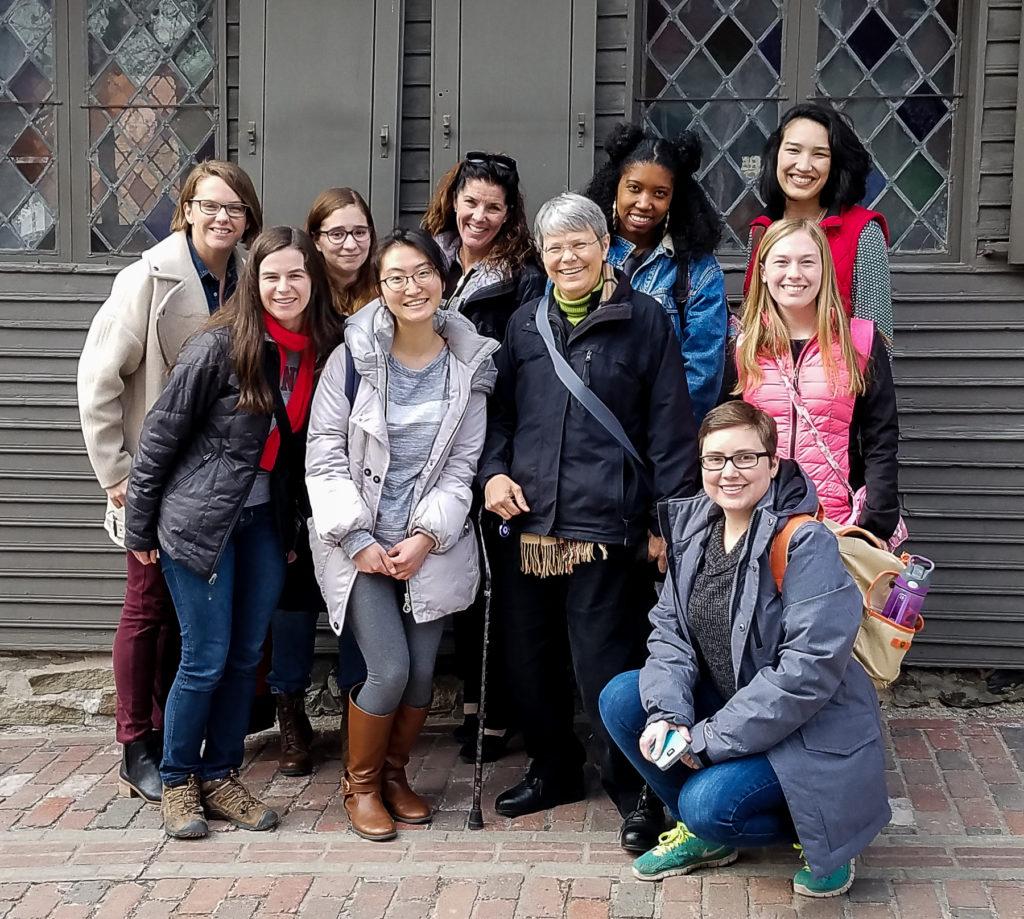The Center for Teaching, Learning and Assessment has awarded Assistant Dean for Disability Resources Autumn Wilke and Professor Eliza Willis, political science, funding for a project called Innovation Inspires Inclusion. The project explores accessibility on campus through the lived experiences of student leaders.
The grant provides training for six student leaders, two staff and two faculty members by the Institute for Human Centered Design (IHCD) on how to conduct user/expert reviews of the campus environment. The IHCD defines a user/expert as “anyone who has developed natural experience in dealing with the challenges of our built environment.”
The IHCD stresses that the experience of the user/expert is often radically different from that of designers. The of user/experts is crucial to design spaces that serve all.
“[We] were inspired by an on-campus user/expert training we received from the Institute for Human Centered Design in June 2016 [and] were able to witness how much the campus buildings needed this form of accessibility review,” Willis said. “We felt that students would make the best user/experts and reviewers [and] saw the opportunity to create leaders in this area of need.” In an email to The S&B, Wilke wrote that the ultimate goal of the Innovation Inspires Inclusion project is “to provide opportunities for individuals with disability expertise, by way of their lived experiences, to influence the accessibility of the college campus.” Methodologically, Wilke said that the program will “provide contextual feedback on the accessibility of the physical, informational and attitudinal environment at Grinnell College through individualized reviews of programs and spaces.”
Wilke wrote that another primary goal of the project is “to provide leadership development to Grinnell College students who will become leaders in their fields and expand accessibility awareness beyond Grinnell.” She stressed that any individual — faculty, staff, student or campus visitor — can become a user/expert on campus.
“User/experts include parents managing with toddlers, older people with changing vision or stamina, people of short stature, limited grasp or who use wheelchairs,” Wilke wrote. To become a user/expert, interested community members can complete an application by visiting www.tinyurl.com/accessgc.
Both Willis and Wilke have been consistent advocates for campus accessibility. Wilke has worked at the College since 2011 and holds a graduate certificate in Post-Secondary Disability Services from the University of Connecticut. She and the coordinator of Academic Support and Assistive Technology, Angie Story, co-lead the College’s Accessibility Committee. Willis is currently working closely with the Institute for Human Centered Design in order to ensure that all Phase One construction projects incorporate accessibility into their plans. She also leads the Grinnell Advisory Panel on Accessibility and Universal Design.

Students learned to conduct user/expert reviews of the campus; this initiative was led by Autumn Wilke and Eliza Willis.
As the experiences of these concerned staff members attest, advocacy for accessibility constantly evolves to correspond with changes on campus. An example of large-scale accessibility advancement is evidenced in the plans for the new Humanities and Social Studies Center. Grinnell’s website states that “Major accessibility considerations” of the new HSSC designs include “bridging of the floor level differential between ARH and Carnegie and placing and pairing of elevators and stairs in and across pavilions [and] wider halls and other features to enhance access by all.”
Yet the long-term construction of this new complex poses accessibility challenges to the everyday lives of Grinnell students. Construction takes up a large portion of campus walkways, forcing students to walk around the fenced off work site in order to access the ARH and Carnegie Hall. Even a small change in the layout of campus can pose a crucial barrier to individuals with accessibility needs. Recently, students have also raised concerns about the changes in the layout of dining hall tables. Fall break saw the elimination of the two-person tables lining one side of the dining hall. These smaller tables can provide a refuge from the commotion of the dining hall that can pose a severe challenge to those with social anxiety.
Therefore, accessibility is not just the province of major planning committees. Manager of Access Services Micki Behounek, who is involved with the Innovation Inspires Inclusion project, wrote in an email to The S&B that advocates for accessibility “work to change small things such as the promotion of no bicycles parked on accessible paths” as well as “raising awareness for committees and architects to pay attention to accessibility in the construction of a new building on campus.”
The Innovation Inspires Inclusion project aims to contribute to accessibility work on the large and small scale. “I believe the impact of this project has many ripples that could someday grow into waves. This project could change the experience for anyone (student, staff, faculty, townsperson) with any type of accessibility need,” Behounek wrote.
As Behounek said, “Every person on this campus has the power to make positive changes that impact accessibility.”
To learn more about the Innovation Inspires Inclusion project, visit its page on the Grinnell website.




































































